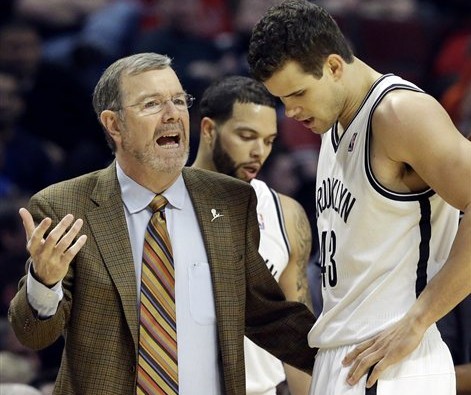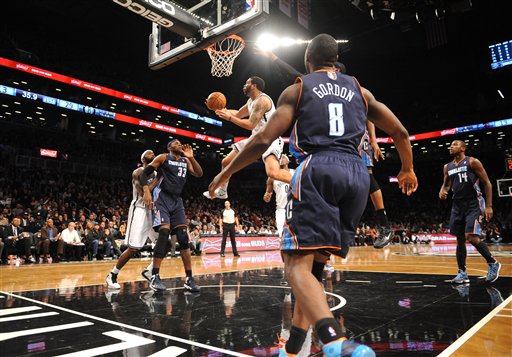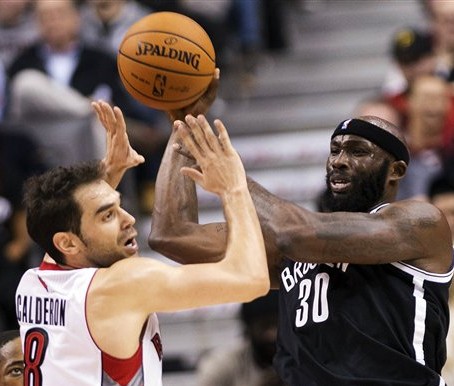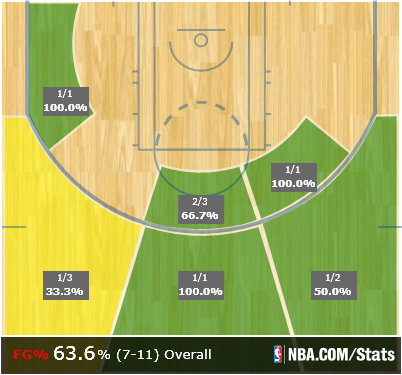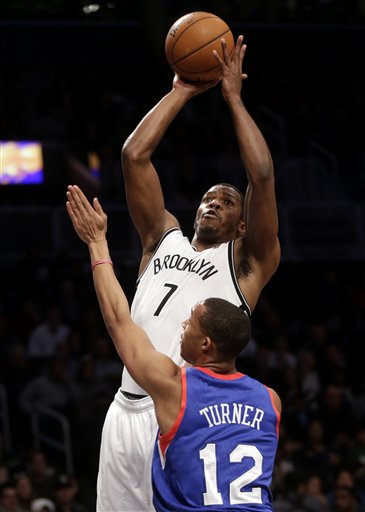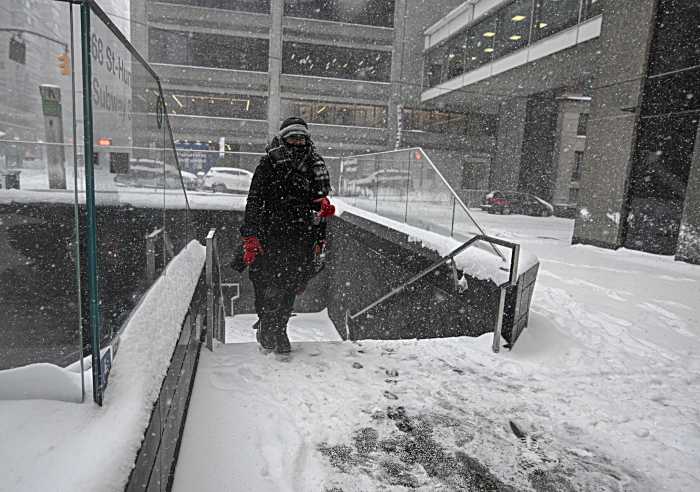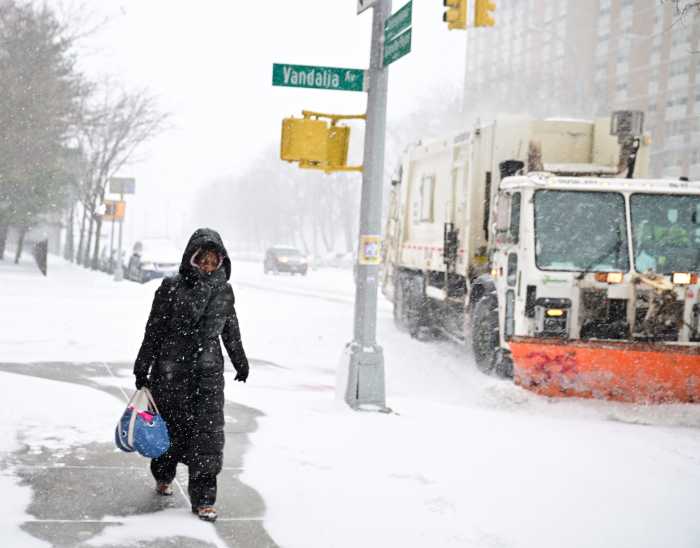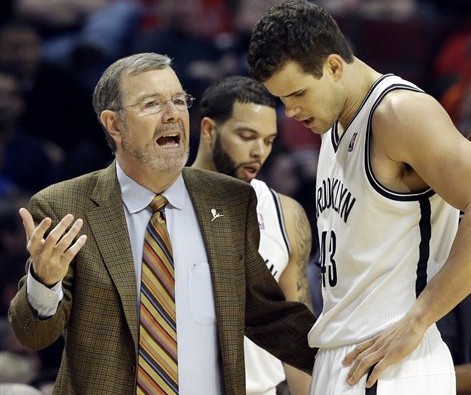
Humphries’ move to the end of the bench shouldn’t come as much of a surprise to anyone: he lost his starting spot to Evans months ago, and Carlesimo has publicly stated his interest in getting Mirza Teletovic more minutes and Andray Blatche more minutes at the 4, without any endorsement of Humphries. The writing has been on the wall for some time, and his minutes have suggested the same: just two in their most recent contests, and not above 30 in one game in over three months.
Still, it’s mildly perplexing to see Humphries fall of a cliff so fast; it doesn’t seem that long ago that former coach Avery Johnson was talking about taking Humphries’ game “to another level” at the beginning of the lockout-shortened season, a season in which Humphries put up a career-best 17.9 Player Efficiency Rating, averaging 13.8 points and 11.0 rebounds in 34.9 minutes per game.
But the Nets have seen a different Humphries this season; his shooting across the board has declined, both in quantity and quality. After building a reputation as a forward with some tunnel vision on offense in New Jersey, Humphries is averaging 8.9 field goal attempts and 10.7 points per 36 minutes, using just 15.8% of the team’s possessions when on the court. Those are all career lows. His player efficiency is lower than it’s been since he was 20 years old. He’s brought some value to the floor, but the combination of tempered playing time and a lack of explosiveness have kept Humphries from standing out in a power forward rotation packed with mediocrity.
The Nets signed Humphries to a two-year contract worth $24 million this offseason, but the contract was never an asset the Nets would expect that value from on the floor. Even though it’s fun to imagine Nets owner Mikhail Prokhorov incensed at the idea that he’s paying a paperweight $12 million, Humphries’ value, both then and now, is in the brevity and expiry of his contract; when teams will be clamoring to get under the luxury tax at the end of next season (the year the “repeater tax” and its strong penalties kicks in), an expiring contract worth $12 million is extremely valuable to a franchise, no matter how often or well the player performs.
The payoff to signing Humphries, then, was never what he’d do on the court, but what he could net them off it. That still remains to be seen.

